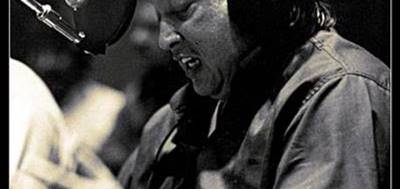How Nusrat Fateh Ali Khan started Qawwali and what makes him special?
Team TheSufi.com answers your questions on Nusrat Fateh Ali Khan
Q1. What made Nusrat Fateh Ali Khan special?
Nusrat Fateh Ali Khan possessed an array of qualities that set him apart from his contemporaries. Firstly, his vocal prowess was unparalleled. His powerful, emotive voice had an exceptional range that effortlessly traversed melodic patterns and scales. This, combined with his innate sense of rhythm and ability to modulate his voice, allowed him to create spellbinding improvisations and intricate vocal embellishments.
Secondly, Nusrat Fateh Ali Khan’s innovative approach to Qawwali music breathed new life into the traditional genre. He skillfully blended traditional elements with contemporary influences, expanding the boundaries of Qawwali and introducing it to a global audience. Through his collaborations with international artists, he brought Qawwali into diverse genres, promoting its fusion with world music and captivating new listeners worldwide.
One of the key aspects that set Nusrat Fateh Ali Khan apart was his ability to improvise and perform lengthy vocal improvisations known as “sargam” and “taans.” These improvisations showcased his extraordinary vocal control, allowing him to effortlessly navigate intricate melodic patterns and scales. He had an innate sense of rhythm and a remarkable ability to modulate his voice, effortlessly shifting from thunderous lows to soaring highs.

Nusrat Fateh Ali Khan
Q2. How Nusrat Fateh Ali Khan started Qawwali singing?
Nusrat Fateh Ali Khan’s musical journey began at a young age. Born on October 13, 1948, in Faisalabad, Pakistan, he hailed from a family of Qawwals, with a lineage tracing back more than six centuries. He inherited the rich tradition of Qawwali music from his father, Ustad Fateh Ali Khan, and developed his own distinctive style over the years.
Qawwali is a devotional form of music rooted in Sufism, the mystical branch of Islam. Nusrat Fateh Ali Khan’s Qawwali took the genre to new heights, blending traditional elements with his innovative approach. His voice possessed a rare combination of power, range, and emotive qualities that left audiences spellbound. His renditions of Sufi poetry, with their spiritual depth and transcendental melodies, resonated with listeners of all backgrounds.
Q3. How Nusrat Fateh Ali Khan gained global fame?
Nusrat Fateh Ali Khan’s fame spread far beyond the borders of Pakistan. He collaborated with numerous international artists, including Peter Gabriel, Eddie Vedder, Michael Brook, and many more. These collaborations helped introduce Qawwali music to a global audience and contributed to its integration into various genres like world music, fusion, and even mainstream pop.
Some of Nusrat Fateh Ali Khan’s most iconic songs include “Allah Hoo Allah Hoo,” “Mera Piya Ghar Aaya,” “Afreen Afreen,” “Tumhein Dillagi Bhool Jaani Padegi,” and ” Dam Mast Qalandar“. These songs are characterized by their passionate vocals, intricate rhythmic patterns, and captivating melodies. Nusrat Fateh Ali Khan’s performances were often accompanied by a group of talented musicians playing traditional instruments such as harmonium, tabla, and dholak, creating a mesmerizing ensemble.
Beyond his remarkable talent as a vocalist, Nusrat Fateh Ali Khan’s songs were vehicles of spiritual expression and emotional connection. His performances transcended language barriers, touching the hearts of people around the world. He had a unique ability to convey profound messages of love, devotion, and longing, leaving an indelible impact on his listeners. Tragically, Nusrat Fateh Ali Khan’s life was cut short on August 16, 1997, at the age of 48. However, his musical legacy lives on. His songs continue to inspire and influence aspiring musicians, and his contributions to Qawwali music remain unparalleled. He received numerous awards and accolades throughout his career, including the prestigious UNESCO Music Prize in 1995.



